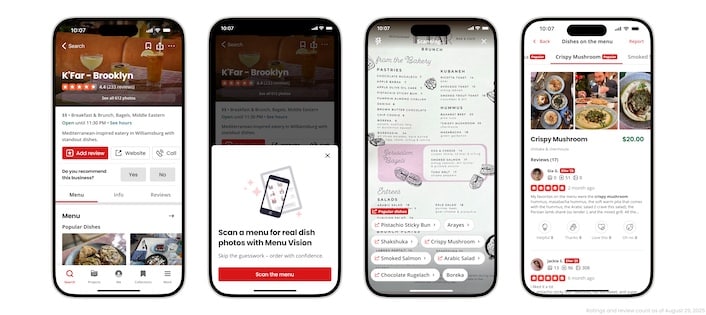OpenAI has finally launched a web browser. Known as Atlas, it seeks to embolden OpenAI as the front door to your connected experiences – positioning already seeded by ChatGPT’s escalating usage. This move aligns with the logic behind AI engines having their own browser and takes the fight to Google.
Before getting into all those strategic implications, what is Atlas, and what does it do? Similar to Perplexity’s Comet Browser, it puts AI search at the center of the experience. Because AI search and the browser are bolted together, it also means that AI search can be more personalized.
In other words, it will know your browsing history on deeper levels and can thus refine its results in more personalized ways. This compares with ChatGPT’s non-browser positioning, where it only has access to your history on ChatGPT, assuming you’re signed in. Infused at the browser level, it can be a lot smarter.
Of course, all the above raises privacy concerns in terms of an AI agent knowing you more intimately. Like Perplexity, OpenAI is taking steps to alleviate such concerns, such as running some models locally within the browser, as opposed to processing and storing everything in the cloud.
As for the rollout plan, OpenAI says that Atlas will first be available on MacOS. It will then be released to Windows, iOS, and Android. The company also says that the browser will be free for all users at launch. That free positioning may be indefinite, as Atlas can be a loss leader for OpenAI (more on that in a bit).
Will AI Elevate or Eviscerate Search: The New Rules of Engagement
Native Edge
Now, on to the strategy behind AI browsers, the idea is to rethink the role of the browser in an AI-first world. In other words, these are meant to be native AI browsers, as opposed to legacy browsers that retrofit themselves with some AI. That last part is Google’s playbook, as seen with Chrome thus far.
Among other things, this means replacing manual browsing with agentic AI functions that act on behalf of users. That could involve agents that are prompted to achieve an outcome, then complete multi-step workflows. Think: comparison shopping for a new TV, which can then be bought in the same workflow.
These things can already be done with AI engines, but not necessarily integrated at the browser level. That integration can mean unified workflows and convenience. It will also have a more comprehensive profile of you, as noted, in order to refine results. It will know that you own a dog and like Korean BBQ.
Beyond capability, AI integration at the browser level can mean convenience. For example, ChatGPT will know what’s on your screen at all times to do things like summarize a web page with less friction. By comparison, users currently accomplish this by cutting and pasting URLs into ChatGPT.
Another advantage in owning the browser is customer acquisition. Freemium models from the likes of OpenAI and Perplexity are elevated with a greater top of the funnel. To that end, a browser is basically one giant funnel opening to drive users towards various paid products, as Google has demonstrated.
But most of all, browsers allow Perplexity and OpenAI to circumvent Google as the user touchpoint. Given that they’re increasingly competitive with Google, they don’t want it to own and control the vessel through which they’re delivered. That logic could extend further down the stack, but it’s browsers today.
History Repeats
Sticking with that last point, it’s clear that Atlas is a direct shot at Google – the biggest incumbent force that OpenAI continues to disrupt. A browser to compete with Chrome’s primacy is the next logical move on OpenAI’s chessboard. And it could be advantaged given the native AI angle noted above.
Beyond a native edge, OpenAI has another advantage over Google in the fight to own the front door to the web: the lack of an innovator’s dilemma. For Google to really compete in AI search, it needs to cannibalize itself. The best AI search engine it can build is misaligned with the need for paid search.
That means from a product perspective, it could have one hand tied behind its back. Besides conflicting interests between its AI innovation and its core business, its size – relative to Open AI – makes it less agile. Every product conception and rollout will be tied to ten other things and canibalization risk.
If this all sounds familiar – and terribly ironic – it’s because this is the same position that Google put legacy publishers in for the past two decades. They faced the same innovator’s dilemma. Most chose not to cannibalize themselves, at their peril. We’ll see how well Google observed and internalized that lesson.
OpenAI’s moves are also familiar because, like Google, it’s taking steps to own your entire click stream. The browser welcomes you to the web, while ChatGPT feeds you info, and other efforts – such as native transactional capabilities – mean you never have to leave. This is the Google playbook, all over again.
Lastly, we should mention here that just two days after OpenAI announced Atlas, Microsoft announced a new “Co-pilot Mode” in the Edge browser. This will accomplish much of the above integrated AI advantages (the topic of a separate post) while it represents the latest shot in the AI browser wars.
Header image credit: Mariia Shalabaieva on Unsplash



